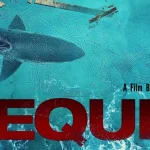Fear and Loathing in Las Vegas (1998)
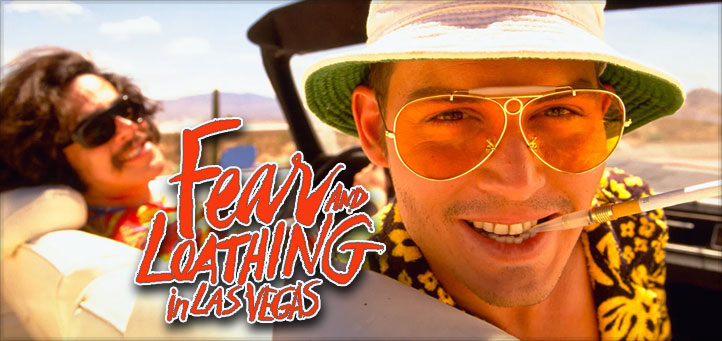
Fear and Loathing in Las Vegas (1998), directed by Terry Gilliam, is a darkly comedic, surreal adventure film based on Hunter S. Thompson’s 1971 novel of the same name. The film stars Johnny Depp as Raoul Duke and Benicio del Toro as Dr. Gonzo, two eccentric characters who embark on a chaotic and drug-fueled journey to Las Vegas in search of the American Dream. The film explores themes of excess, disillusionment, and the decay of American society during the countercultural movement of the 1960s and 1970s. Known for its bold, visually experimental style and bizarre humor, Fear and Loathing in Las Vegas has become a cult classic.
The film follows the misadventures of Raoul Duke, a journalist, and his attorney, Dr. Gonzo, as they travel to Las Vegas to cover a motorcycle race. However, their journey quickly spirals into a hallucinatory nightmare as the two men indulge in excessive drug use, hallucinations, and erratic behavior. As they attempt to navigate the absurdities of Las Vegas, their experiences grow increasingly surreal, with the lines between reality and fantasy blurring. Throughout their chaotic adventure, the film critiques the American Dream, showing how the pursuit of freedom and success can often lead to self-destruction and disillusionment.
At the core of Fear and Loathing in Las Vegas is its exploration of the American Dream and the disillusionment that often accompanies the pursuit of it. Duke and Gonzo’s journey is a chaotic search for meaning in a world filled with excess, greed, and superficiality. The film reflects the failure of the American Dream by showing the destructive effects of consumerism, capitalism, and the desire for fame and fortune. Rather than achieving the idealized vision of success, the characters find themselves lost, confused, and disillusioned. The film critiques the emptiness of the American Dream and suggests that the pursuit of personal freedom can sometimes lead to chaos and self-destruction.
Terry Gilliam’s distinctive visual style is central to the film’s impact. The film is known for its surreal, psychedelic visuals, which mirror the drug-induced states of the characters. The use of exaggerated colors, rapid editing, and distorted imagery creates a disorienting and hallucinatory experience for the audience. These visual techniques enhance the film’s theme of blurred reality, making it difficult for viewers to distinguish between what is real and what is imagined. The surrealism in Fear and Loathing in Las Vegas serves to reflect the internal turmoil of the characters and their descent into madness as they chase after an elusive, unattainable ideal.
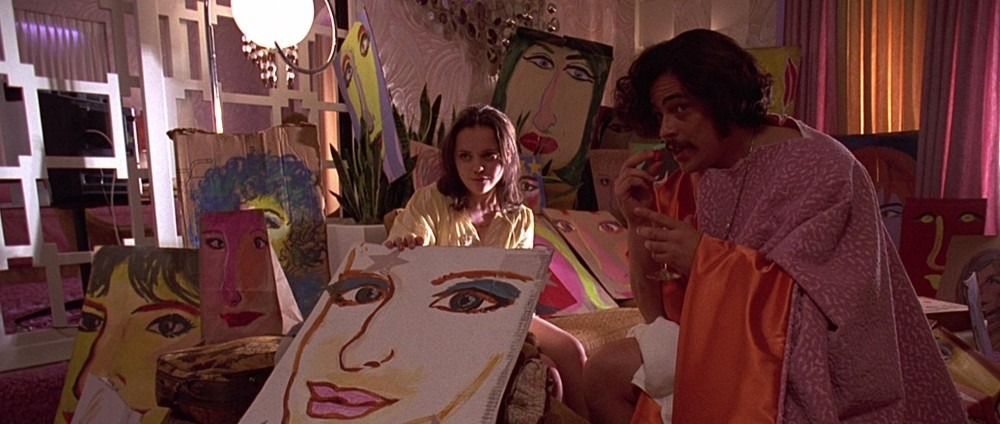
Johnny Depp and Benicio del Toro deliver memorable performances in their respective roles. Depp’s portrayal of Raoul Duke is both manic and introspective, capturing the character’s chaotic energy and disillusionment with the world around him. His performance captures the essence of Thompson’s gonzo journalism, which blends fact and fiction to create a personal narrative that is both engaging and absurd. Benicio del Toro’s portrayal of Dr. Gonzo is equally brilliant, bringing a sense of unpredictability and danger to the character. The dynamic between Depp and del Toro creates a perfect balance of humor and madness, making their partnership both entertaining and unsettling. Their chemistry elevates the film, making the viewer feel as though they are part of their wild, out-of-control adventure.
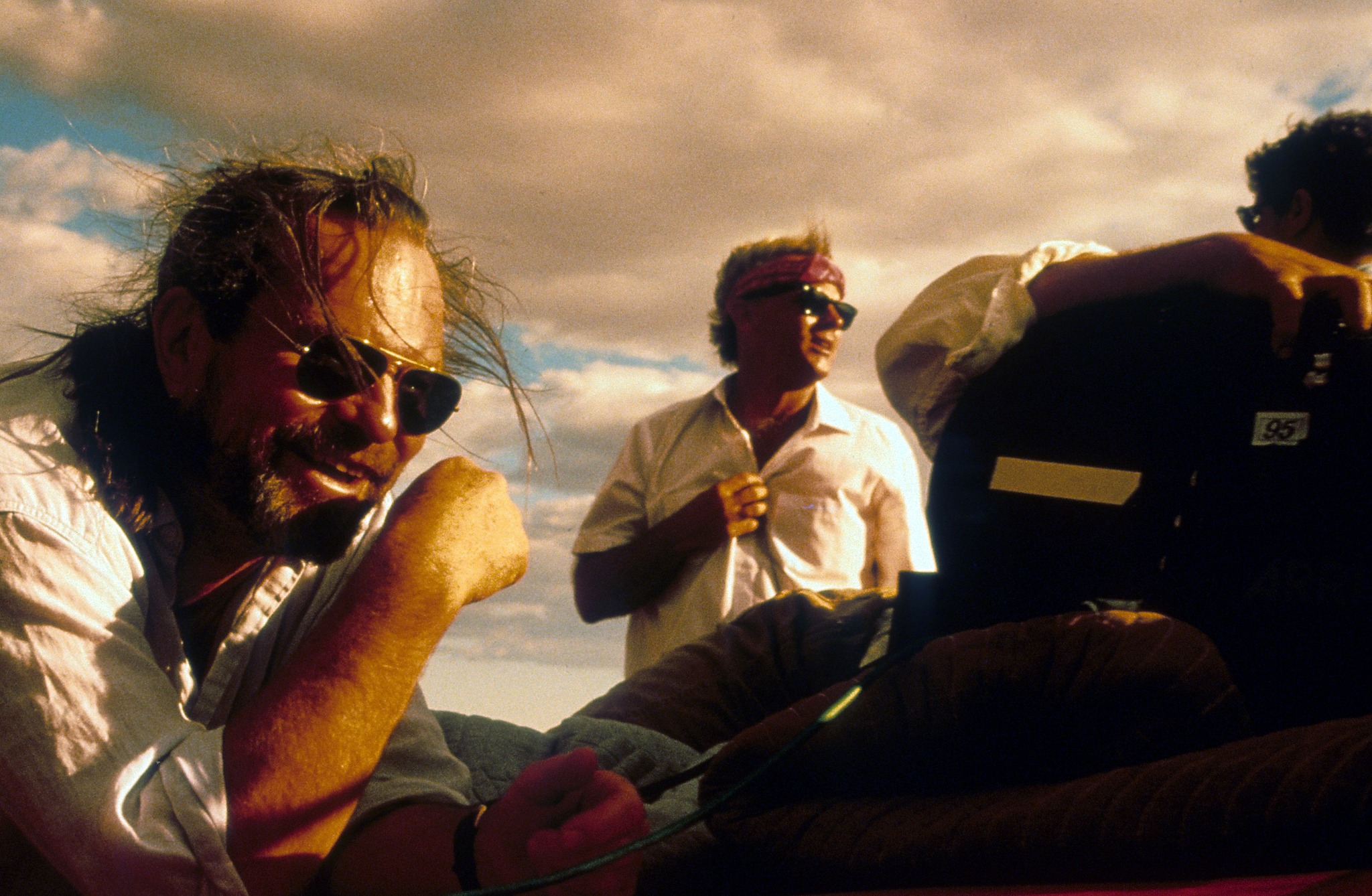
Beyond its narrative and visual style, Fear and Loathing in Las Vegas serves as a biting social commentary on the cultural and political climate of the 1960s and 1970s. The film critiques the hypocrisy, corruption, and moral decay of American society, especially in the aftermath of the counterculture revolution. The characters’ reckless behavior and self-destructive tendencies mirror the disillusionment of a generation that sought liberation but found only emptiness. The absurdity of their journey reflects the absurdity of a society that promises freedom and opportunity but fails to deliver meaningful change. The film uses humor and surrealism to critique the contradictions of American culture, making it both a political statement and a cautionary tale.
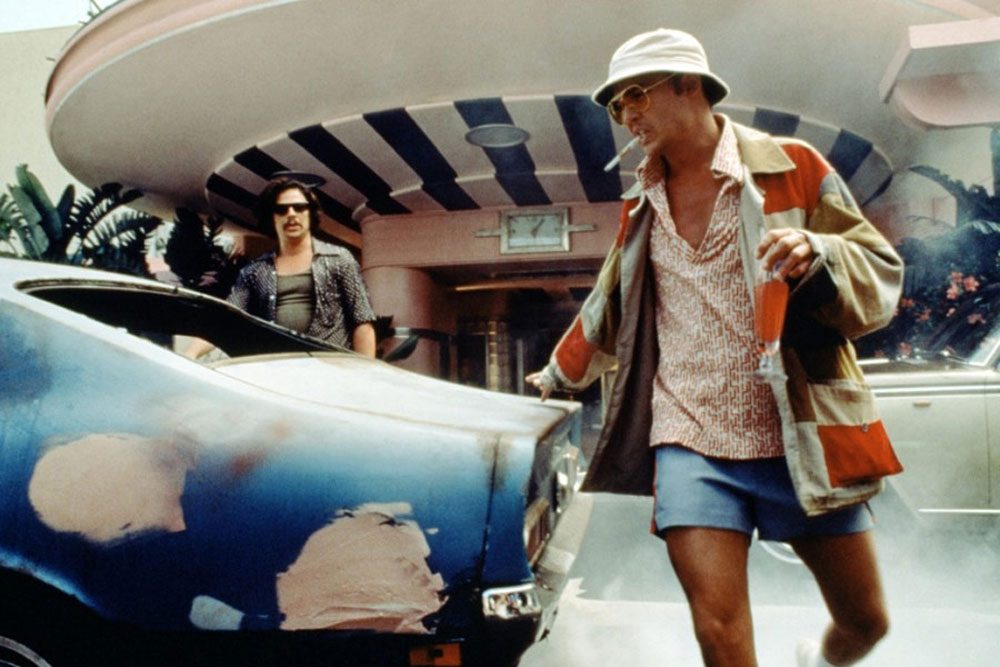
Fear and Loathing in Las Vegas is a surreal, visually stunning, and thought-provoking film that explores the collapse of the American Dream. Through its chaotic narrative, eccentric characters, and biting social commentary, the film challenges conventional ideas of success and freedom, offering a darkly comedic take on the pursuit of happiness in modern America. Terry Gilliam’s unique style, combined with stellar performances from Johnny Depp and Benicio del Toro, makes the film a cult classic that continues to resonate with audiences. At its core, Fear and Loathing in Las Vegas is a story about the dangers of excess and the disillusionment that can arise from the pursuit of a flawed ideal.









